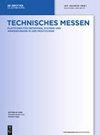基于广义空间召回指数的人工智能算法局部性能评价
IF 0.7
4区 工程技术
Q4 INSTRUMENTS & INSTRUMENTATION
引用次数: 0
摘要
我们开发了一种新的指标来衡量人工智能(AI)或机器学习(ML)算法的性能,称为空间回忆指数(SRI)。新颖性是标准性能指标的空间分辨率,因为召回值被分配给每个单独的像素。这将根据数据集中图像的分辨率生成给定ai算法的性能分布。虽然之前已经介绍了数学基础,但这里我们将演示在更多数据集上的用法,并深入研究应用程序示例。我们使用最先进的目标检测算法检查MS COCO和伯克利深度驱动器数据集。数据集使用物理逼真的镜头模型进行降级,其中光学性能随视场而变化,就像真实的相机一样。这项研究强调了SRI的有用性,因为每个图像都是由现实光学拍摄的。引入了广义的GSRI,并由此导出了用于自动驾驶的SRIA、目标面积加权和SRIrisk。最后,对这些指标进行比较。本文章由计算机程序翻译,如有差异,请以英文原文为准。
Local performance evaluation of AI-algorithms with the generalized spatial recall index
Abstract We have developed a novel metric to gauge the performance of artificial intelligence (AI) or machine learning (ML) algorithms, called the Spatial Recall Index (SRI). The novelty is the spatial resolution of a standard performance indicator, as a Recall value is assigned to each individual pixel. This generates a distribution of the performance of a given AI-algorithm with the resolution of the images in the dataset. While the mathematical basis has already been presented before, here we demonstrate the usage on more datasets and delve into in-depth application examples. We examine both the MS COCO and the Berkeley Deep Drive datasets, using a state-of-the-art object detection algorithm. The dataset is degraded using a physical-realistic lens-model, where the optical performance varies over the field of view, as a real camera would. This study highlights the usefulness of the SRI, as every image has been taken by realistic optics. A generalization, the GSRI is introduced, from which we derive SRIA, weighting with object area and SRIrisk intended for autonomous driving. Finally, these metrics are compared.
求助全文
通过发布文献求助,成功后即可免费获取论文全文。
去求助
来源期刊

Tm-Technisches Messen
工程技术-仪器仪表
CiteScore
1.70
自引率
20.00%
发文量
105
审稿时长
6-12 weeks
期刊介绍:
The journal promotes dialogue between the developers of application-oriented sensors, measurement systems, and measurement methods and the manufacturers and measurement technologists who use them.
Topics
The manufacture and characteristics of new sensors for measurement technology in the industrial sector
New measurement methods
Hardware and software based processing and analysis of measurement signals to obtain measurement values
The outcomes of employing new measurement systems and methods.
 求助内容:
求助内容: 应助结果提醒方式:
应助结果提醒方式:


